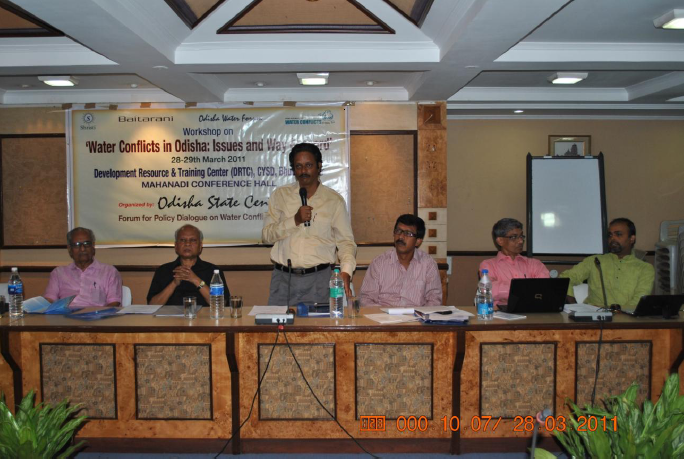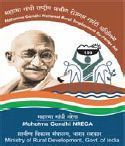/regions/political
Political
The consultative committee of the Ministry of Water Resources discusses the role and functions of Central Water Commission - PIB Release
Posted on 30 May, 2011 03:25 PMThe Consultative Committee of the Ministry of Water Resources met recently under the Chairmanship of Shri Salman Khurshid, Minister of Water Resources. Minister of State for Water Resources, Shri Vincent H. Pala was also present along with the secretary and other senior officers of the Ministry.
Workshop on journalism and the environment, United Nations Environment Programme, 2nd June, 2011, New Delhi
Posted on 28 May, 2011 10:05 AMOrganizer: The United Nations Environment Programme (UNEP)
Venue: The Leela Palace, New Delhi
Topics:
- Mainstreaming the Economics of Nature– case studies from India and the world
- The Value and Sustainability of Forests Ecosystems: The role of forests in combating climate change , conserving biodiversity and catalysing transformation to Green Economy
- Climate Change Adaptation in High Mountain Areas
Acara Institute selects student teams to pursue clean water, safe food projects in India, 2011
Posted on 27 May, 2011 03:22 PMWinners hail from the University of Minnesota, TERI University (Delhi), Cornell, Duke, K.J. Somaiya Institute of Management (Mumbai) and India Institute of Technology Roorkee.
Minneapolis / St. Paul (May 19,2011) – This is a competition sponsored by Institute on the Environment’s Acara program that invites international student teams to learn about and develop social businesses. The winners will receive $5,000 plus tuition to attend the Acara Summer Institute in Bangalore, India, this summer, where they will move their proposed businesses from plan to action.
Analysis of TAC guidelines and decisions in recent meetings' - Dams, Rivers and People - Newsletter of SANDRP for April, May 2011
Posted on 27 May, 2011 01:26 PM
Newsletter of South Asia Network on Dams, Rivers and People (SANDRP) for April - May 2011 (Volume 9 Issue 3-4), focuses on the following topics.
- Analysis of TAC guidelines and decisions in recent meetings
The Advisory Committee in the Union Ministry of Water Resources for consideration of techno-economic viability of Irrigation, Flood Control and Multi Purpose Project Proposals (TAC in short) is supposed to discuss the techno-economic viability of the irrigation, flood control and multi-purpose project proposals as per the Resolution published in the Union of India Gazette Notification No. 12/5/86-P-II dated Nov 27, 1987.
Sir Ratan Tata Trust offers one-year scholarships at the Masters’ level - Apply by 20th June, 2011
Posted on 27 May, 2011 01:01 PMEstablished in 1919, the Sir Ratan Tata Trust (SRTT) is one of the oldest philanthropic institutions in India, and has played a pioneering role in changing traditional ideas of charity. The Navajbai Ratan Tata Trust, formed in 1974, works together with SRTT to bestow grants.
The Sir Ratan Tata Trust, Mumbai, offers one-year scholarships at the Masters’ level for students who wish to study in the UK or two-year scholarships in the USA in the broad field of Development Studies, with special focus on Developmental Economics, Public Health or Science-Technology-Society (STS) Studies.
Proceedings of 'Water Conflicts in Odisha : Issues and way forward' - Organised by Odisha State Centre of the Forum for Policy Dialogue on Water Conflicts in India - 28th - 29th March 2011, Bhubaneswar
Posted on 27 May, 2011 12:48 PM
Development Resource & Training Centre (DRTC), CYSD, Bhubaneswar:
A 2-days Workshop on “Water conflicts in Odisha: Issues and way forward” has been organized during 28th – 29th, March, 2011 at Bhubaneswar by ‘Odisha State Centre’ of the ‘Forum for Policy Dialogue on Water Conflicts in India’. Environmental activists, thinkers, academicians, Government Officials, Farmer leader’s and Civil Society Organizations from different parts of the state participated in the workshop along with members of the National Steering Committee of Forum to discuss about the ongoing and emerging water conflicts in different geographies of the state.
Using the metro lines in Bangalore for rainwater harvesting - Article by S Vishwanath
Posted on 27 May, 2011 12:29 PMAs the elevated tracks come up over the city a mass transport network called the metro is being built all over the city. In phases it is likely to cover over a 100 kilometre and become one of the prime modes of transport to the city. Apart from the transport benefits it will bring to the city there is one other potential benefit that could accrue to the city due to its construction.
The metro rail track offers a tremendous potential for rainwater harvesting. A total length of about 45 kilometres and a width of about 12 metres mean that the endowment of rainwater on the relatively very clean track with Bangalore’s rains of 970 mm annually is about 523 million litres. Considering a coefficient of runoff of 0.90 the harvestable rainwater is around 471 million litres annually. This could provide about 13,000 people with their annual requirement of water at 100 litres per day. A substantial sum.
"Shit Matters: The potential of CLTS", State-level sensitisation workshop on CLTS held in Patna - Updates from the CLTS May 2011 Newsletter
Posted on 27 May, 2011 12:24 PMContent Courtesy:
Main highlights in this update:
- Shit Matters: The Potential of Community-led Total Sanitation: This book looks at the potential and challenges of CLTS by drawing on research in Bangladesh, India and Indonesia, as well as experiences in Africa. It includes chapters by leading scholars and practitioners in sanitation policy and practice as well as critical reflections from key players in CLTS. Shit Matters considers CLTS in terms of the social, ecological, technological, financial, and institutional dynamics and draws out wider lessons for sanitation policy and practice.
"NREGA implementation in State not satisfactory": MGNREGS News updates compiled by FES (16 - 30 April 2011)
Posted on 27 May, 2011 12:11 PM
Main highlights in this update:
- NREGA implementation in State not satisfactory: The report card on implementation of Mahatma Gandhi National Rural Guarantee Act (MGNREGA) is a mix bag for Assam, with at least 62 per cent households being provided employment under the flagship schemes, while ombudsman has not been constituted for any district and State fund.
Training programme on understanding EIA: From screening to decision making, Centre for Science and Environment, 27th June – 1st July, 2011, New Delhi
Posted on 27 May, 2011 10:05 AMOrganizer: Centre for Science and Environment (CSE)
Venue: Centre for Science and Environment (CSE), 41, Tughlakabad Institutional Area, New Delhi
The programme will cover:
- Exposure to all aspects of EIA, from its theory to the practical – such as better understanding regarding
- What data is required, how this data should be collected and interpreted, and significance of the data
- Effectiveness of the assessment methods
- What issues should be addressed in the terms of reference (TOR)
- Tools and thumb rules available to evaluate the environmental impact of projects